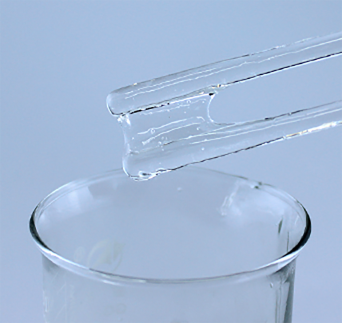
Dec . 18, 2024 14:55 Back to list
hpmc meaning
Understanding HPMC The Meaning and Significance
Hydroxypropyl methylcellulose (HPMC) is a versatile and widely used chemical compound in various industries, particularly in food, pharmaceuticals, and construction. This article aims to shed light on the meaning of HPMC, its properties, applications, and significance in our daily lives.
What is HPMC?
HPMC is a semi-synthetic polymer derived from cellulose, which is a natural polymer found in the cell walls of plants. Specifically, HPMC is produced by the modification of cellulose through the addition of hydroxypropyl and methyl groups. This process not only enhances the solubility of the compound but also improves its versatility, making it suitable for a wide range of applications.
The structure of HPMC is characterized by the presence of hydroxypropyl and methyl groups attached to the cellulose backbone. This results in a white, odorless powder that can dissolve in water, forming a viscous solution. The degree of substitution (the number of hydroxyl groups replaced) can be adjusted during production, leading to various grades of HPMC with different properties.
Properties of HPMC
HPMC exhibits several key properties that make it an invaluable ingredient in many formulations. One of its primary characteristics is its ability to form gel-like substances when mixed with water. This gel formation is influenced by the concentration of HPMC and the temperature of the solution. Additionally, HPMC is known for its good film-forming abilities, which allow it to create protective coatings on surfaces.
Another important property of HPMC is its viscosity. Depending on the grade, HPMC can produce thick solutions, making it an ideal thickening agent in food products and cosmetic formulations. It also has excellent emulsifying properties, allowing it to stabilize oil-in-water emulsions, which are commonly found in lotions and creams.
hpmc meaning

Applications of HPMC
Due to its unique properties, HPMC is utilized across a wide array of industries.
1. Food Industry In food products, HPMC serves as a thickener, stabilizer, and emulsifier. It is commonly found in dressings, sauces, and bakery products. HPMC is particularly valued in gluten-free baking, as it helps retain moisture and improve the texture of gluten-free baked goods.
2. Pharmaceuticals In the pharmaceutical industry, HPMC plays a crucial role in drug formulation. It is used as a binder in tablets and as a controlled-release agent, allowing for the gradual release of medications in the body. Its non-toxic and biodegradable nature makes it suitable for various applications in this sector.
3. Cosmetics and Personal Care HPMC is widely used in the cosmetics industry due to its smooth texture and thickening properties. It is commonly found in lotions, creams, shampoos, and conditioners, where it improves product consistency and application.
4. Construction In the construction industry, HPMC is employed as an additive in cement-based products, such as tile adhesives, joint fillers, and plaster. It enhances workability, reduces water demand, and improves adhesion and durability.
Conclusion
HPMC is a remarkable compound with significant meaning in various industries. Its versatility, non-toxic nature, and beneficial properties make it a staple in food production, pharmaceuticals, cosmetics, and construction. As consumers, we may often overlook the presence of HPMC in the products we use daily, but understanding its importance can lead us to appreciate the science behind the formulations that enhance our lives. Whether it's improving the texture of a delicious sauce, ensuring the effectiveness of a medication, or providing a smooth finish in a cosmetic product, HPMC is a silent yet powerful contributor to modern-day conveniences.
-
Versatile Hpmc Uses in Different Industries
NewsJun.19,2025
-
Redispersible Powder's Role in Enhancing Durability of Construction Products
NewsJun.19,2025
-
Hydroxyethyl Cellulose Applications Driving Green Industrial Processes
NewsJun.19,2025
-
Exploring Different Redispersible Polymer Powder
NewsJun.19,2025
-
Choosing the Right Mortar Bonding Agent
NewsJun.19,2025
-
Applications and Significance of China Hpmc in Modern Industries
NewsJun.19,2025







